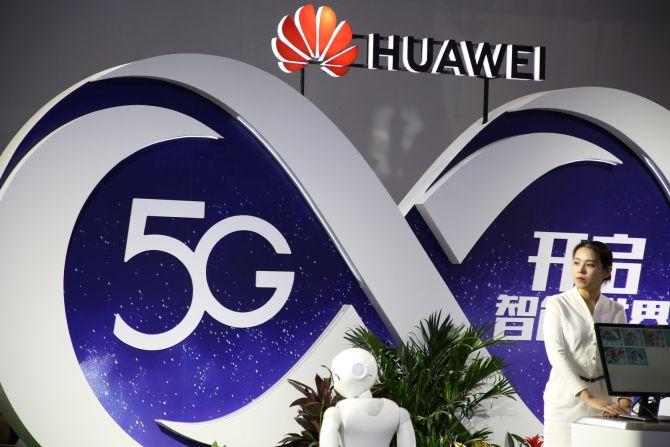 | « Back to article | Print this article |
Most Indian IT firms work as system integrators for Huawei and though the exposure is very less as of now, the potential is more due to 5G roll out.
As pressure to keep the Chinese firm out of the 5G network grows, other global firms, including Japan’s NEC, South Korea’s Samsung, Finland's Nokia and Sweden’s Ericssion are increasing their investments to grab more market share in the telecom sector.

Any further escalation in the India-China conflict may jeopardise Indian IT services firms’ business relationship with Huawei as many of them count the Chinese telecom giant as a client as well as a go-to-market partner.
Among the Indian IT companies, top-tier firms such as TCS, Infosys, Wipro and Tech Mahindra are learnt to be service providers for Huawei.
Some of them have also forged strategic tie-ups, keeping in mind the larger business interest.
Infosys, for example, has a partnership with Huawei in cloud and data analytics space while Tech Mahindra has tied up with the company in the enterprise products space.
Even though these companies are said to be deriving less than one per cent of their overall revenues from the Shenzhen-headquartered firm, the pie was expected to go up as India prepares itself to roll out 5G telephony services in the coming months.
“Most Indian IT firms work as system integrators for Huawei, which has a dominant market share in emerging economies, including Latin America, Africa and India.
"Though the exposure is very less as of now, the potential is more due to 5G roll out.
"For this, every IT firm is preparing themselves big,” said Pareekh Jain, an IT outsourcing advisor and founder of Pareekh Consulting.
“If tension escalates and Huawei is not allowed to participate, it will definitely impact this potential source of revenue,” he added.
Mails sent to TCS and Tech Mahindra elicited no response while Infosys declined to comment on the matter.
Huawei also has its second largest research and development (R&D) centre in India, employing around 6,000 people.
It may come under scrutiny if India-China relations worsen, sources said.
Over the past years, the Chinese telecom giant has been facing a difficult business environment across Western economies, including the US, Canada and Europe.
Last year, the US had banned technology transfer to Huawei, following which many global technology giants, including Alphabet Inc (parent entity of Google) and Microsoft, scaled down their engagement with the Chinese firm.
In the latest US-China trade war, the Pentagon has published a list of 20 Chinese companies, including Huawei, which it says are backed by the military.
Meanwhile, as pressure to keep the Chinese firm out of the 5G network grows, other global firms, including Japan’s NEC, South Korea’s Samsung, Finland's Nokia and Sweden’s Ericssion are increasing their investments to grab more market share in the telecom sector.
Some of the Indian IT players have also started relying on domestic players.
For instance, on Monday, Tech Mahindra entered into an agreement with public sector manufacturer of telecom and defence equipment ITI for developing 4G and 5G networks.
This collaboration aims at creating ‘Make in India’ stack in the telecom space, which will eventually reduce India’s dependence on imports.
However, some experts feel that any escalation of border issues would adversely impact trade in goods than services.
“Chinese firms and China traditionnally contribute very less to the Indian IT services sector.
"So, the impact will not be high,” said V Balakrishnan, chairman of Exfinity Venture Partners.
Balakrishnan is also former CFO and board member at Infosys.
Photograph: Reuters